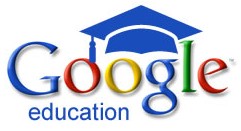The 3rd Annual DEN SCIcon was held this past Saturday, January 28th. The DEN SCIcon provides participants with effective strategies for transforming science classes through effective integration of digital media content. The conference was broadcast live and online so many people joined in from home. There were also in-person events around the country, hosted by the local
DEN Leadership Council (made up of educators). It was all FREE.
I attended at the live Connecticut event, which was hosted at the
Mark Twain House and Museum in Hartford, CT. We also got to have a short tour of the house that Twain lived in while writing his seminal works. Very interesting house.
The day started with breakfast catered from Panera Bread and then the sessions started. SCICon is broadcast using WebEx and presenters share their links, videos, and presentations through that, as their voice is simulcast. There is also a chat window that the presenters use to interact with the audience around the world, answer questions, and much more. There were about 35 of us at the CT site participating, and Patti Duncan, the final speaker of the day, broadcast from our location.
These are my notes from the different sessions. There are also links to the actual presentations.
UPDATED 1/31/2012The full video of each presentation can be found here:
http://www.youtube.com/user/DiscoveryEducation#g/c/4ACCE64D332A72FF9 AM
Opening Session
Your Attention Please: 10 Ways to Engage Your Students in ScienceLance Rougeux
Download the presentation.Engage: use these to hook students on a new topic
Demo, video, Show image - I see, I know, I wonder... Discussion - lead into new topic
E.ggtimer.com - online timer to keep on schedule
Writing prompts - use a picture to get them writing
Superlame.com
Photopeach - photo with quiz on common misconceptions
(free account) upload photo, choose and music from site, add captions, quiz questions, - turns it into a video with timing.
Audio files - play audio file with student eyes closed, listen, and describe what you "see" etc.
Crappy Graphs - (or draw a graph) - with no explanation - have students try to figure it out with just a topic, or create a "story" based on the graph.
Real world connections. Everyday applications, Google Earth - ocean obs, weather, geography,
Guess the Wordle - create and post a Wordle and have the students try to guess what it is about/theme based on the words.
10 AM
Inquiring Minds Want to Know: Student Learning through Inquiry-based InstructionTrinette Green
Download the presentation.use videos from
Head Rush with questions for students
explore topic of there choice
(went on the 1030 tour of Mark Twain house)
11 AM
What’s the GIST? Bridging Literacy and ScienceBrad Fountain
Download the presentation.Literacy
read short article, answer ?s, summarize, analyze
give them a bunch of sentences that summarize, represent article and select best ones
black out words in science article and have students try to figure out what word belongs
compare/contrast
analyze, research,
exit ticket/journal - discuss one way todays lesson can be used in the real world
if, then before lab, predict then test
RAFT - role audience format topic - writing as what role, who is aud, what format (letter, article), what is topic
(science fiction story based on real science topic)
speaking literacy - video or live presentation - summary, explain, do own narration of a video,
12 PM
The Common Core ConnectionKelly Pauling
Download the presentation.Ate lunch during this session - catered by Panera Bread (yum)
Common core standards
(do projects - presentation, glog, video, site, etc on ___)
1 PM
Busting the Myths of Project Based Learning in the Science ClassroomMike Bryant
Download the presentation.Project Based Learning
common craft has a video on it
Edutopia, DEN,
http://www.edmodo.com/publisher/biepbl,
classroom20.com, DE science resources are great for PBL
2 PM
Closing Session
The Scientific Method… It’s Not Just For Chapter One AnymorePatti Duncan
Download the presentation.(Patti was with us in CT when she did this presentation)
My Tweets about this session:
Scientific Method is not a chapter, its a yearlong method for all science - Discovery Ed #scicon
goo.gl/hF0V5Too many "versions" of scientific method and too linear. It's a cycle that starts with ?. Discovery Ed #scicon
goo.gl/hF0V5Scientific method starts with question, has various routes and methods - Discovery Ed #scicon
goo.gl/hF0V5Scientific method, engineering process - both are way to answer questions and solve problems. Discovery Ed #scicon
goo.gl/hF0V5Students know how to investigate and solve problems informally - they go online and figure stuff out. Now use that in school. #scicon
Give students opportunities to practice scientific skills like question, observe, research, compare, analyze, experiment, conclude #scicon
Have students analyze commercials on TV to see fact vs fiction. Good observation practice. #scicon
Do labs, investigations, virtual labs and simulations at start of unit instead of end to get them inquiring and actively learning #scicon
Start unit with a problem and then students get info from unit work and resources during unit to solve problem. #scicon
Failure is ok! It's part of discovery, learning, investigating, problem solving, science and engineering #scicon
Tell students what they are supposed to be learning and then ask if they think they learned it. Everyday. Then have them do it. #scicon
Make sure they really understand before they get to a test. #scicon
Less step-by-step labs, more open ended. Have students then apply conclusions/results to solve original problem. #scicon
It was a great day of learning and sharing. Discovery Education does a lot of live/virtual events like this throughout the year. Many state Leadership Councils host live events like the one I attended, but it's also nice to just be able to participate and learn from your home in your PJs.
I will be posting information for them as they are announced.

































